第61章 CHAPTER VIII(10)
"That after having well considered, she had found no way of saving the life of the Queen of Scotland while securing her own, that accordingly she could not grant it to them". To this declaration, the Master of Gray replied: "That since it was thus, he was, in this case, ordered by his master to say that they protested in the name of King James that all that had been done against his mother was of no account, seeing that Queen Elizabeth had no authority over a queen, as she was her equal in rank and birth; that accordingly they declared that immediately after their return, and when their master should know the result of their mission, he would assemble his Parliament and send messengers to all the Christian princes, to take counsel with them as to what could be done to avenge her whom they could not save."
Then Elizabeth again flew into a passion, saying that they had certainly not received from their king a mission to speak to her in such a way; but they thereupon offered to give her this protest in writing under their signatures; to which Elizabeth replied that she would send an ambassador to arrange all that with her good friend and ally, the King of Scotland. But the envoys then said that their master would not listen to anyone before their return. Upon which Elizabeth begged them not to go away at once, because she had not yet come to her final decision upon this matter. On the evening following this audience, Lord Hingley having come to see the Master of Gray, and having seemed to notice some handsome pistols which came from Italy, Gray, directly he had gone, asked this nobleman's cousin to take them to him as a gift from him. Delighted with this pleasant commission, the young man wished to perform it the same evening, and went to the queen's palace, where his relative was staying, to give him the present which he had been told to take to him. But hardly had he passed through a few rooms than he was arrested, searched, and the arms he was taking were found upon him. Although these were not loaded, he was immediately arrested; only he was not taken to the Tower, but kept a prisoner in his own room.
Next day there was a rumour that the Scotch ambassadors had wanted to assassinate the queen in their turn, and that pistols, given by the Master of Gray himself, had been found on the assassin.
This bad faith could not but open the envoys' eyes. Convinced at last that they could do nothing for poor Mary Stuart, they left her to her fate, and set out next day for Scotland.
Scarcely were they gone than Elizabeth sent her secretary, Davison, to Sir Amyas Paulet. He was instructed to sound him again with regard to the prisoner; afraid, in spite of herself, of a public execution, the queen had reverted to her former ideas of poisoning or assassination; but Sir Amyas Paulet declared that he would let no one have access to Mary but the executioner, who must in addition be the bearer of a warrant perfectly in order, Davison reported this answer to Elizabeth, who, while listening to him, stamped her foot several times, and when he had finished, unable to control herself, cried, "God's death! there's a dainty fellow, always talking of his fidelity and not knowing how to prove it!"
Elizabeth was then obliged to make up her mind. She asked Davison for the warrant; he gave it to her, and, forgetting that she was the daughter of a queen who had died on the scaffold, she signed it without any trace of emotion; then, having affixed to it the great seal of England, "Go," said she, laughing, "tell Walsingham that all is ended for Queen Mary; but tell him with precautions, for, as he is ill, I am afraid he will die of grief when he hears it."
The jest was the more atrocious in that Walsingham was known to be the Queen of Scotland's bitterest enemy.
Towards evening of that day, Saturday the 14th, Beale, Walsingham's brother-in-law, was summoned to the palace! The queen gave into his hands the death warrant, and with it an order addressed to the Earls of Shrewsbury, Kent, Rutland, and other noblemen in the neighbourhood of Fotheringay, to be present at the execution. Beale took with him the London executioner, whom Elizabeth had had dressed in black velvet for this great occasion; and set out two hours after he had received his warrant.